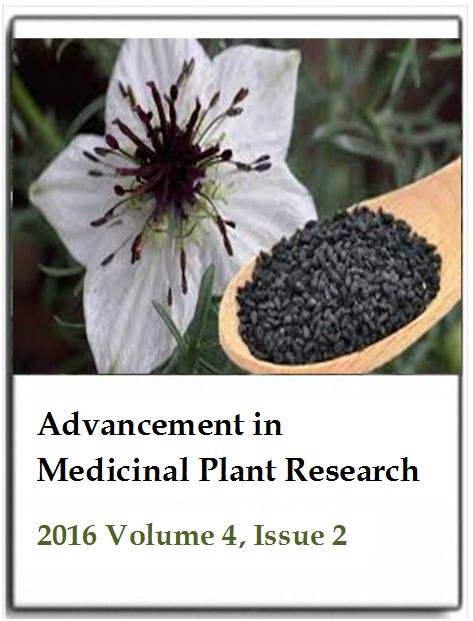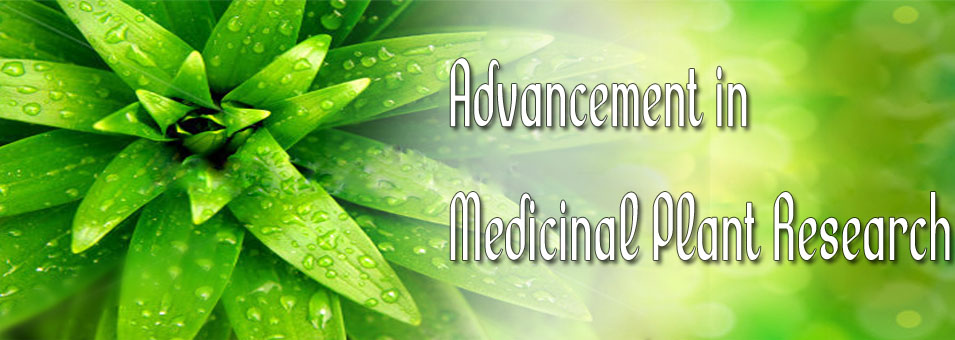A survey of essential oils from Mentha spp. as an antimicrobial potential agent against Candida species
Iza Teixeira Alves Peixoto, Vivian Fernandes Furletti, Paula Cristina Anibal, Glyn Mara Figueira, Adilson Sartoratto, Simone Nataly Busato de Feiria, Marta Cristina Teixeira Duarte and José Francisco HöflingAdvancement in Medicinal Plant Research
Published: June 13 2016
Volume 4, Issue 2
Pages 58-72
Abstract
Mentha spp. essential oils have shown different properties regarding accession despite belonging to the same species and antimicrobial properties indicating possible clinical relevance. A survey of 64 accessions of Mentha spp. essential oils were carried out proving their differences regarding yield and potential antimicrobial activity against Candida albicans, Candida dubliniensis and clinical samples. The oils were obtained by water vapor-distillation by clevenger. Anti-CandidaCandida spp. were M. canadensis MC 05; M. suaveolens MC 30; M. arvensis MC 36 and M. suaveolens x spicata MC 52. These oils revealed inhibition against yeast cells and promoted the best MIC (≤ 0.5 mg/ml). MC 05 was enriched with carvone (74.8%); MC 30 with piperitenone oxide (28.0%); MC 36 with linalool (33.2%) and MC 52 with pulegone (52.2%). All the essential oils showed action on the biofilm in formation and mature biofilm, being that the formation of biofilm was inhibited up to 96% and the mature biofilm was deconstructed up to 54%. The results obtained from these essential oils revealed genotypes with different properties and anti-Candida activity, a number of these oils could contribute to the characterization of the antimicrobial properties due to their phenotypical characterization.
Keywords: Candida spp., essential oil, medicinal plants, Mentha spp.
Full Text PDF
